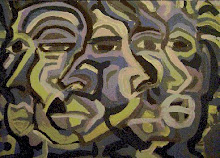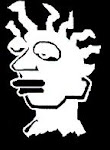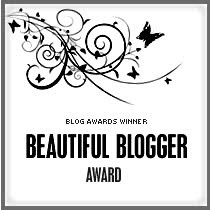 There is no such thing as "Talking White".
There is no such thing as "Talking White".Do you mean with a Texas Twang?
Or a Southern drawl?
Or like you're from Jersey or New Yawk?
Like a Valley Girl (or Dude)?
Do you mean like your from a trailer park?
Or Appalachia?
Or the Cajun pigeon of Southern Louisiana?
I used to watch King of the Hill.
Before moving to Texas, I thought Boomhower was just speaking gibberish.
But after being here for more than ten years - I understand every word the guy says.
It's just that I've become more familiar with the dialect.
There is no such thing as "Talking White".
It's just Standard American English.
We might be able to call it a media accent.
Or a corporate accent.
Actors and newscasters are often sent to speech coaches to scrub them of their regional accents when the move to the national market.
Why?
Because it's just easier to communicate.
It eliminates the distraction of the listener having to ask; "What?".
It's not the Queen's English either.
The Queen speaks British English.
The common practice of pretentious people, who over-articulate ev-er-y syllable, is just an affectation of intelligence.
No one naturally speaks that way.
A Northern California educator asked if I thought an ESL class to correct Ebonics was a viable option.
Another respected blogger told me that such a class would be seen as condescending.
But how do we eliminate the dialect from anything other than casual conversation?
Unless you're an athlete or entertainer - Ebonics seem to serve little purpose.














7 comments:
That's interesting. Being from Michigan, most of us talk like people on TV talk (accent-less).
I think regional accents are beautiful, but you do have to learn to hear them. Eastern Indian folks speak very quickly and their words have round sounds. So you have to listen faster.
People from the south tend to draw words out and make them long. So you have to listen slower.
I once dated a guy originally from Tehran, Iran. His native language is Farsi, and he also speaks, reads and writes in Spanish and English. Talking to him in person (for the most part) was ok, I understood him. Talking to him on the phone was torture. Huh? What? Wait, what word did you just say?
After a while I learned to listen and hear the dialect. Talking to him on the phone to him was just like talking to anyone.
But it takes some getting used to. It takes some time.
So if you are a child growing up in a Spanish-speaking home and you have to take a test written in English, you might not do so well.
If you are a child growing up in a home where slang is used every day and words get misused regularly..you might not fare so well on a test written in proper English.
I wonder what would happen if the same tests were written in a dialect more easily understood by the person taking the test...
Great post.
I don't want to sound biggoted or anything but I doubt that Jews have to go through stuff like this. They speak or don't speak their Yiddish at home or among themselves. Even if they don't speak Yiddish, they keep the culture or the accent among those that understand it. But when they want to communicate with the greater world, they turn to standard language of whatever contry they are in.
In Canada and some european countries, they don't even have one standard language but most people do fine, because they learn the language that will help them. I don't even know how many languages they have in India or China, but they all get along and do what they need to do. What's wrong with black people doing that here?
I think I have about 3 or 4 modes of english that I fall into; one for home, one for friends, one for work and one for all other environments, which is close to the work one but not quite the same.
please don't change a thing.. i am awed by the ways in which our amazing language is spoken by different regional or cultural groups... i would love to hear myself objectively someday.....
I have been accused of "talking white" more times than I care to remember. Someone actually told me I sounded 'half-white, half-hood and half-valley girl'... did you notice there are too many halves there? Yeah... made no sense to me either.
@ RunningMom - But just go to the other side of the lake to Minnisooota. That Dutch influence on the region (N.D., S.D. et.al.) is a dead giveaway.
The reason I brought it up was that I have a young cousin who was having problems in his classes. He thought that a "wasp" was a "wass" (as an example)- and spelled it that way. When I had him read to me, I discovered that he was just spelling phoneticly. After he started the understand the proper way to pronounce words, he did better.
@ Curious - Yeah, even the grammar and vocabulary of my posts are influenced by whom I've dealt with on any given day.
Sometimes the code-switching gets a bit tangled.
@ paisley - I don't mind the regional dialects. It adds a bit of spice to a conversation.
But when it hinders one's education, it becomes a problem.
@ Hey Shae! - Damn... those same people, with all those halves, would probably say that you "Add-White" too.
My father corrected my english tirelessly. My family spoke standard American at home and most adults I interracted with did as well. The english sections on tests were very easy, almost natural. All I had to do was channel what my dad would say and "poof" correct answer.
I had a friend who refused to speak naturally or informally when around "just us guys". It bugged us to death (still does). The matter is not what is the best way to talk, but what is appropriate for the setting.
knowing how to spell wasp doesnt have as much to do with how english is spoken at home but how much a person reads.
@ brohammas - Well, the kid wasn't doing a lot of reading to begin with. No one in his family reads much. He was trying to spell phoneticaly - it didn't match up.
But yes, reading is a better way to learn to spell.
Post a Comment